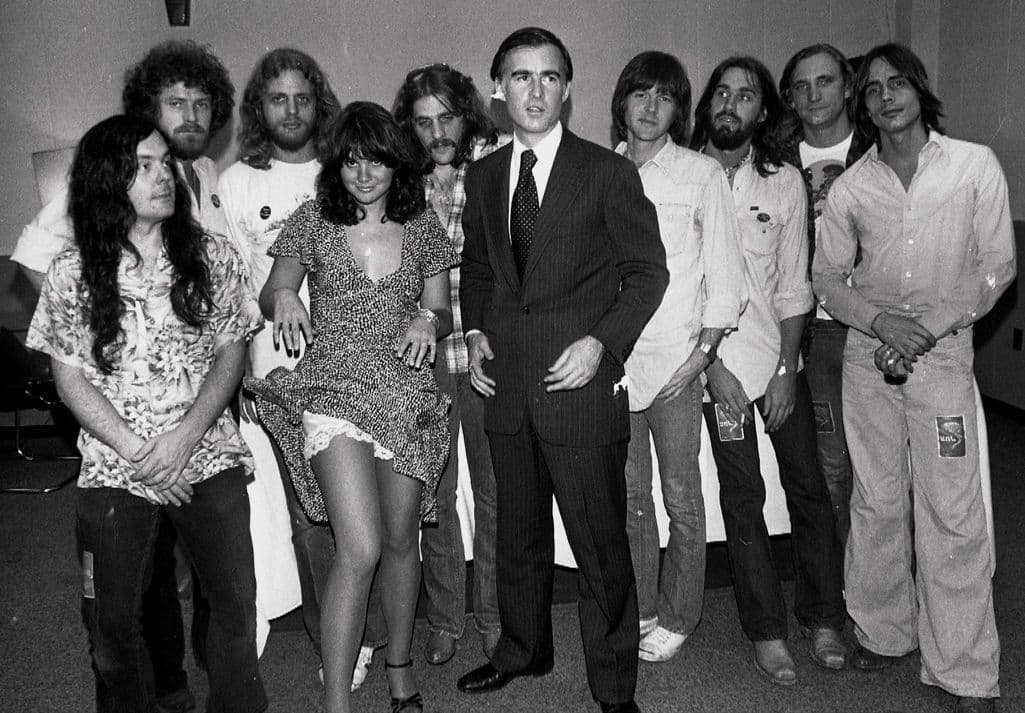
A Tender Farewell: When You Know the Love Is Lost, But Still Long to Comfort the One You Leave Behind.
The year 1973 marked a quiet but profound turning point for the Southern California sound, and for one of its most essential voices, Linda Ronstadt. It was the year of her pivotal fourth solo studio album, Don’t Cry Now, and its poignant title track a song that didn’t storm the charts but instead slipped gently into the collective heart. Released on Asylum Records, this album signified her critical move from Capitol, introducing her long and fruitful collaboration with producer Peter Asher. While the album itself climbed modestly, peaking at Number 45 on the U.S. Billboard 200 chart and reaching Gold certification shortly thereafter, the song “Don’t Cry Now” became an enduring, tender whisper in her catalogue. It served as a bridge: a delicate farewell to the country-folk leanings of her earlier work and a graceful step toward the sophisticated soft-rock mastery that would make her a superstar with Heart Like a Wheel a year later.
The Heartbeat of the Laurel Canyon Sound
The song “Don’t Cry Now” was penned by the brilliant John David Souther, a cornerstone of the emerging L.A. singer-songwriter community, known simply as J.D. Souther. At the time, Souther was not only a close musical collaborator but also intimately involved with Linda Ronstadt, making her interpretation of his compositions deeply personal and resonant. The track’s original recording was by his supergroup, The Souther–Hillman–Furay Band, but it’s Ronstadt’s version that many recall as the definitive emotional statement.
The meaning of “Don’t Cry Now” is a masterclass in understated heartache. It’s not a song of mutual, devastating loss, but of a specific, sacrificial love at the moment of rupture. The narrator is leaving a relationship a decision that is clearly settled, perhaps necessary, but profoundly painful. The entire lyrical focus is not on her own pain, but on the agony she is inflicting on the one she is leaving. The refrain, “I’ve got to leave you, but please, darling, don’t cry now,” is a plea, a final act of comfort, and a desperate, futile attempt to control the inevitable sadness. It acknowledges the depth of their shared history and the unfairness of the present moment: “I know that this is the end of the line, and I know that I must follow what I find. But darling, I would rather see you smile than watch you break and run from me now.”
A Nostalgic Reflection
For those of us who came of age with this music, the album Don’t Cry Now and its title track hold a unique, soft-focus nostalgia. It wasn’t the radio smash “You’re No Good,” but it was the song you played alone, in the quiet, reflective moments after a difficult goodbye. Ronstadt’s vocal performance here is what separates her from her peers. She doesn’t belt; she trembles. Her voice possesses a quality that can simultaneously convey immense strength and fragile vulnerability. When she sings “I’d rather face the world alone than break you in two,” you hear the exhaustion of a difficult choice made out of a strange, parting kindness. It evokes the memory of those first major heartbreaks, when the decision to move on even the right decision felt like tearing a piece out of your own history.
This song, and indeed the entire album, captures the very essence of the 1970s L.A. music scene: the brilliant merging of country instrumentation (featuring pedal steel, which is prominent here) with the lyrical sophistication of pop-rock songwriters. It’s an artifact of a time when the best artists were not just singers, but interpreters, capable of taking a brilliant song and finding the marrow of its meaning, making it completely, devastatingly their own. Linda Ronstadt did that, and in the four minutes of “Don’t Cry Now,” she gave us a soundtrack for the kind of bittersweet ending that stays with you forever.